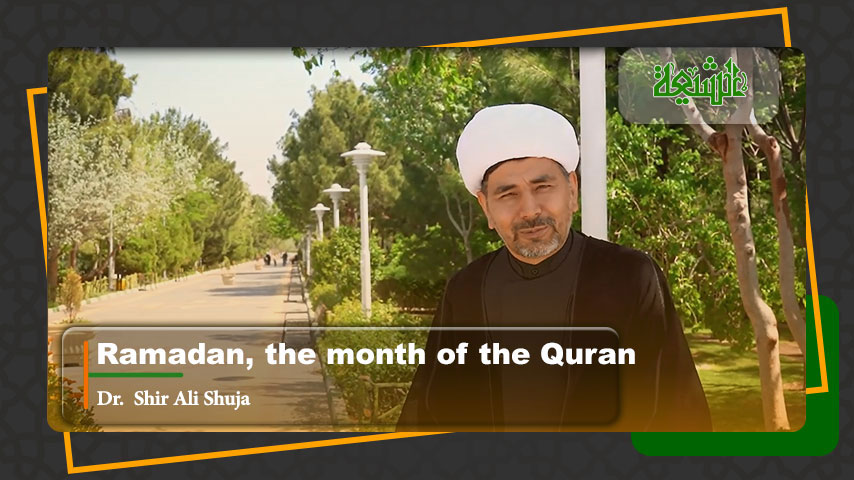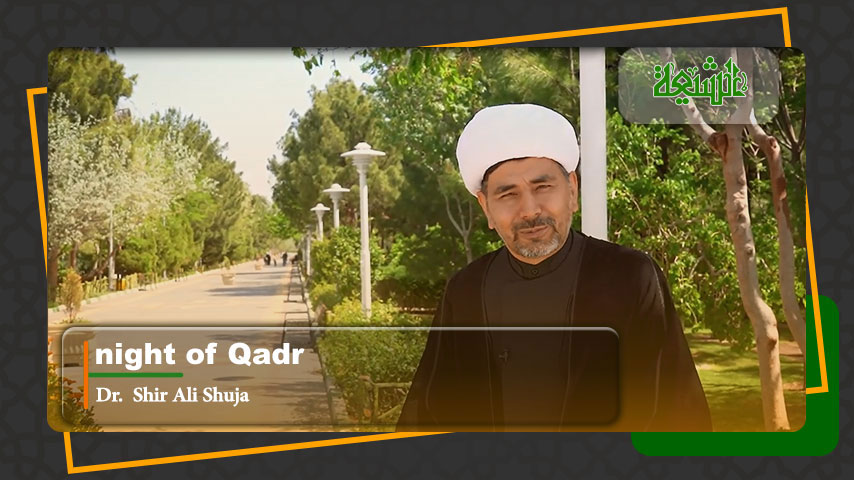The Bismillah or Basmalah is the Islamic phrase for (Arabic: بِسْمِ ٱللَّٰهِ ٱلرَّحْمَٰنِ ٱلرَّحِيمِ, Bismillāhi r-Raḥmāni r-Raḥīm) which is usually translated as “In the name of God, the Most Gracious, the Most Merciful”. The phrase is one of the most important phrases in Islam and it is frequently being used by Muslims mostly before starting “good deeds” as well as at the beginning of most daily actions.
Amir al-Mu’minin (a.s) narrated from the Holy Prophet (S) who quoted Allah, the Almighty to have said:
كُلُّ أمْرٍ ذِي بَالٍ لاَ يُذْكَرُ ’بِسْمِ اللهِ‘ فِيهِ فَهُوَ أبْتَر
Any important job which is done without Allah’s remembrance, is tarnished and useless. (1)
The late Tabarsi narrates Imam Musa Ibn Ja’far (a.s) in his book ‘Makarim Al-Akhlaq’:
مَا مِنْ أحَدٍ دَهَمَهُ أمْرٌ يَغُمُّهُ أوْ كَرَبَتْهُ كُرْبَةٌ فَرَفَعَ رَأسَهُ إلَى السَّمَاءِ ثُمَّ قَالَ ثَلاثَ مَرَّاتٍ: ’بِسْمِ اللهِ الرَّحْمَنِ الرَّحِيمِ‘ إلاّ فَرَّجَ اللهُ كُرْبَتَهُ وَأذْهَبَ غَمَّهُ، إنْ شَاءَ اللهُ تَعَالَى
There’s no grief-stricken individual who says ‘Bismillahir-Rahmanir-Rahim’ three times while looking up to the sky, except that Allah eliminates his grief, and removes his sorrow if He wills. (2)
We read in an important tradition:
لاَ يُرَدُّ دُعَاءٌ أوَّلُهُ ’بِسْمِ اللهِ الرَّحْمَنِ الرَّحِيمِ
A du’a’ which begins with Bismillahir-Rahmanir-Rahim will not be rejected by Allah. (3)
The Messenger of Allah (S) counted the guards of Hell as nineteen and said,
مَنْ أرَادَ أنْ يُنَجِّيَهُ اللهُ مِنَ الزَّبَانِيَةِ التِّسْعَةَ عَشَرَ فَلْيَقْرَأْ ’بِسْمِ اللهِ الرَّحْمَنِ الرَّحِيمِ‘، فَإنَّهَا تِسْعَةَ عَشَرَ حَرفاً لِيَجْعَلَ اللهُ لَهُ كُلَّ حَرْفٍ مِنْهَا جُنَّةً مِنْ وَاحِدٍ مِنْهُمْ
One who wants Allah to save him from these guards should recite Bismillahir-Rahmanir-Rahim which consists of nineteen letters so that Allah will set each letter as a guard from the fire. (4)
It is narrated from the Messenger of Allah (S):
إذَا قَالَ المُعَلِّمُ لِلصَّبِيِّ: قُلْ ’بِسْمِ اللهِ الرَّحْمَنِ الرَّحِيمِ‘، فَقَالَ، كَتَبَ اللهُ بَرَاءَةً لِلصَّبِيِّ وَلأَبَوَيْهِ وَلِلمُعَلِّمِ
When a teacher teaches ‘Bismillahir-Rahmanir-Rahim’ to a child, the Exalted God sets the child, his parents and his teacher free from the fire. (5)
It is narrated from the Prophet (S):
“My people are accounted for their deeds in the Hereafter, and their good deeds are superior to the bad deeds. The past nations will cry out, ‘Why do their minute good deeds exceed their mountain of bad deeds?’ The prophets of those nations will answer, ‘Because their speech has begun with three of Allah’s names: Allah, the All-beneficent (Rahman), and the All-merciful (Rahim). These three names are greater in weight than all the virtues and vices of mankind.”
It is narrated from Imam al-Ridha (a.s):
إنَّ ’بِسْمِ اللهِ الرَّحْمَنِ الرَّحِيمِ‘ تَقْتَرِبُ مِنَ الإسْمِ الأعْظَمِ اقْتِرَابَ سَوَادِ العَيْنِ مِنْ بَياضِهَا
The ‘Bismillahir-Rahmanir-Rahim’ is as close to Allah’s chief name as is the blackness of the eye to its whiteness. (6)
Certainly, if du’a’ begins with Allah’s principal name, the supplicant is more likely to be answered.
Connotations of Bismillah
Great Arab grammarians believe that the Arabic word ‘ism (name)’ is derived from ‘sumuw’ meaning greatness.
The All-Compassionate connected the preposition ‘bi (with)’ to ‘ism (name)’ in this phrase to connote that by reciting the phrase, the supplicant wants to beseech Allah.
The supplicant should be aware that calling Allah is not sufficient; rather the soul should be purified through seeking forgiveness from the Almighty. In fact, calling Allah without purity of mind and sincerity of intention is considered disrespectful.
The Almighty is in the highest and the most holy position, while man is in the lowest place and cannot promote his position, except by making a strong connection with Allah. That’s why the Merciful God has set ‘Bismillahi (in the Name of Allah)’ as the mediator between Himself and the human being.
An attentive mystic has stated that the Arabic letter ‘ba’’ (B) connotes the beginning of mystical treading onto the path to Allah, and from ‘ba’’ to ‘sin’ (S) which connotes the secret of knowing Allah, there is an endless desert of ignorance.
Hiding of ‘alif’ (A) in this vast desert (7) implies that if the seeker does not dissolve his egotism in the light of Allah’s Unity, he will not reach ‘mim’ (M) which connotes the ultimate intention.
Some believe that ‘ba’’ (B) implies Allah’s Beneficence to all the people and especially to the ordinary people; ‘sin’ (S) implies the secret of His kindness to the noble, and ‘mim’ (M) is an indicator of His Mercy to the most special nobles.
In the invaluable books of ‘Al-Kafi’, ‘Tawhid of Saduq’, ‘Ma’ani Al-Akhbar’ and ‘Tafsir Ayyashi’, it is narrated from Imam Sadiq (as) who said:
“Each of these three letters (in the word ‘bism’) implies one of the Glorious names of Allah; ‘ba’’ is Allah’s Brightness, ‘sin’ is Allah’s Eminence, and ‘mim’ is His Magnificence.”
It is also stated that ‘ba’’ implies the Observant, ‘sin’ implies the All-Hearing, and ‘mim’ implies the Counter.
It is as if Allah makes the supplicant aware that: I am the Observant; I can observe your visible and invisible deeds, so avoid hypocrisy in your action, I am the All-Hearing; I can hear the result of your deeds and supplications, so avoid useless speech, and I am the Counter; I can even count your breaths, so beware of every moment.
The glorified word ‘Allah’ is a comprehensive name for the Almighty, which is a combination of all the attributes of Allah. It is believed that three meanings are present in Allah:
1. Allah is the Eternal Being.
2. Human mind is astonished at knowing and seeking Him.
3. The return of all beings is towards Him.
It is said that the Arabic word ‘الله (Allah)’ is the Chief name of God and is the basis of His Unity, to the extent that if a disbeliever calls this name sincerely, his belief will be proved.
This name is the beginning and end of everything, which is to be upright.
Also, the strength of risalat (prophethood) and wilayat is based on this name, as it exists in the Arabic phrase ‘محمد رسول الله (Muhammad is Allah’s Messenger)’ and ‘علي ولي الله (‘Ali is Allah’s Intimate Servant)’.
Furthermore, if the first letter of the Arabic word ‘Allah (الله)’ is omitted, what remains is ‘lillahi (لله)’, which means ‘for Allah,’ as in the following verse:
لِلَّهِ الأَمْرُ مِنْ قَبْلُ وَمِنْ بَعْدُ
Allah’s is the command before and after. (8)
If the first two letters are dropped, what remains is ‘lahu (له)’, which means (His) remains, as in the following verse:
لَهُ الْمُلْكُ وَلَهُ الْحَمْدُ
To Him belongs the kingdom, and to Him is all due praise. (9)
If the first three letters are dropped, what remains is ‘huwa (هو)”, which means ‘He’ implying Almighty Allah, as in the following verse:
قُلْ هُوَ اللَّهُ أَحَدٌ
Say: He, Allah, is One. (10)
As a result, the name, which has so many features, is definitely Allah’s Chief name. The word “رحمن” (the Beneficent) is derived from “رحمت” (Mercy). Renowned Arab grammarians believe that it is a hyperbole.
To Islamic scholars, the word means “the giver of universal mercy to all the creatures, apart from their service record”. “رحمن” also implies that Allah is inclined to assist all creatures and remove detriment from them. Examples of Allah’s blessings are presented in the holy Qur’an. (11)
Arab grammarians who believe that the word “رحيم” (the Merciful) is an adjectival simile, hence it implies continuity; that is the Mercy of Allah is permanent. This kind of Mercy is specific to the believers, as their virtues and appreciation of Allah’s blessings make them worthy.
We read in Islamic works that Mercy of the first kind involves Allah’s granting sustenance to all creatures and humans either believers or disbelievers.
The second kind of Mercy involves Allah’s granting spiritual blessings to human beings and also His forgiving of the believers in this world and in the Hereafter.
In “رحمانيت” (Beneficence) and “رحيميت” (Mercifulness), the meaning of soundness is involved; one is worldly soundness, the other is heavenly soundness.
The second kind of Mercy includes the obedient whose prayers Allah accepts and the disobedient whose sins He forgives.
Ibn Mubarak has stated: “رحمن” is the One who responds if you ask Him, and “رحيم” is the One who becomes wrathful if you don’t ask Him. An ascetic has said: “The Almighty is “رحمن” in giving sustenance to the creatures and “رحيم” in forgiving the believers’ sins.
For making a living, trust Him, not your own trading; but don’t give up trading which is unwise. For forgiveness of sins, trust Him, not your own deeds; but don’t give up deeds which are against Allah’s will.”
The servant is said to have three states:
First, the state of a nonexistent creature who needed existence; second, the state of a living creature who desires to be permanent; third, the state of one in the Hereafter who needs forgiveness.
The servant in these three states needs Allah and His attributes, as reflected in these three names:
“الله”, who brings the servant from nonexistence to life;
“رحمن”, who provides the means for the servant to continue life;
“رحيم”, who will forgive the servant’s sins in the Hereafter.
Human beings are composed of the heart, body, and soul. The human heart finds knowledge and belief from “الله”, his body finds sustenance from “رحمن”, and the soul finds Mercy from “رحيم”.
One whose heart, body and soul are associated with these three names of God, is free from everything and everyone except Allah and contributes his mercy to other servants of Allah.
The Messenger of Allah (S) is narrated as saying:
“One who says “بسم الله الرحمن الرحيم” and “لا حول و لا قوه الا بالله العلي العظيم” ten times a day, is forgiven by Allah, and Allah saves him from seventy diseases, such as leprosy, black leprosy, and paralysis.”
The Prophet (S) is also narrated to have said:
“One who recites “بسم الله”, Allah will record four thousand virtues for him for each letter, and forgive four thousand sins of him.”
It is narrated that one who recites “بسم الله” before eating, Satan will not become his mate in eating; but if he begins eating and forgets reciting it, Satan becomes his mate.” (12)
NOTES:
_____________________
1. Tafsir Imam Asgari: 25, Al-Iftitah bil-tasmiah…; Wasa’il Al-Shi’ah: 7/170, Bab 17, tradition 9032.
2. Makarim al-Akhlaq: 346, fil Muhimmat; Bihar al-Anwar: 92/ 159, Bab 15.
3. Mustadrak al-Wasa’il: 5/ 304, Bab 16, tradition 5929.
4. Jami’ Ahadith al-Shiah, Sayyid Borojerdi, 15:150.
5. Kashf al Ghita, Shaykh Kashif al Ghita, 2:299.
6. The traditions 4 to 7 are presented in the exegesis of fatihat ul-Kitab the first chapter of the holy Quran.
7. Hiding here implies the position of ‘alif’ in ‘Bismillahi’ which is not pronounced in English or is hidden.
8. The Quran 30:4
9. The Quran 64:1
10. The Quran 112:1
11. Chapter Al-Rahman (55)
12. See “Al-Kafi”, “Ma’ani Al-Akhbar”, “Tawhid Saduq”, “Wasa’il Al-Shi’ah”, “Bahr l-Haqa’iq”, “Mafatih Al-Ghayb” and “Exegesis of Fatihat Al-Kitab”.
















